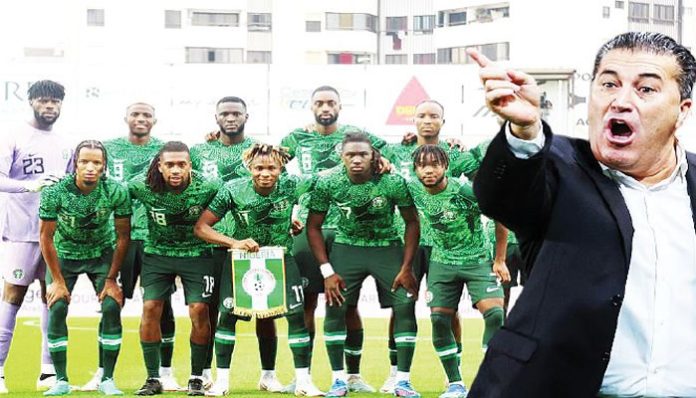THE stepping aside of Austin Eguavoen as interim manager of the Super Eagles has once again thrust the Nigerian Football Federation (NFF) into the spotlight, raising urgent questions about its management, transparency, and professionalism. As the national team remains without a permanent coach, following the NFF’s sudden reversal of its agreement with German-born Bruno Labbadia, it becomes clear that the NFF must address long-standing issues before appointing a new leader for the Super Eagles.
This recent saga is not an isolated case. Over the years, the NFF has developed a troubling reputation for administrative missteps, internal disagreements, and, more alarmingly, a persistent perpetration of corrupt practices. These issues have not only undermined the credibility of the Federation but also hindered the performance and growth of Nigerian football on the global stage.
The handling of coaching appointments by the NFF is, unfortunately, marked by numerous instances bereft of professionalism. The recent U-turn on Labbadia is reminiscent of similar fiascos in the past. One glaring example is from 2010 when renowned late Swedish coach Sven-Goran Eriksson turned down the opportunity to manage the Super Eagles at the World Cup after being asked to divide his salary into two different accounts, one of which would not be in his name. Eriksson’s refusal to comply with such a dubious arrangement exposed the level of internal corruption plaguing the Federation.
Similarly, in 2012, the NFF backtracked on a deal with Belgian coach Tom Saintfiet, who had already agreed to serve as the team’s technical director. Saintfiet, shocked and disappointed by the NFF’s sudden withdrawal, later cited “political interference and racism” as contributing factors. These incidents are part of a broader pattern that reflects deep-seated issues within the NFF.
The trend continued in 2016 when the NFF failed to finalize terms with French coach Paul Le Guen, despite public announcement of his appointment. In 2017, the NFF repeated the error by prematurely announcing Randy Waldrum as the coach of the Nigerian women’s national team, only for Waldrum to later decline the offer due to terms disagreements. Even more recently, in 2021, Portuguese coach Jose Peseiro was set to take over as Super Eagles head coach, only for the deal to fall apart due to unresolved contract clauses and financial disputes. Peseiro’s frustration with the NFF’s inability to finalize a clear agreement reflected yet another chapter in the Federation’s disorganized approach to coaching appointments.
Given this history of administrative failures, it is imperative for the NFF puts its house in order before appointing a new permanent coach for the Super Eagles. Nigerian football, with its immense talent pool and passionate fan base, deserves better leadership and a more transparent, efficient governing body. It’s incumbent on the NFF to shed its reputation for infamy. The credibility of the Federation has remained questionable owing to numerous allegations of financial mismanagement, shady deals, and favouritism. If Nigeria is to attract and retain world-class coaches, the NFF must demonstrate that it is built on integrity and accountability. Prospective coaches should not have to worry about questionable salary arrangements or political interference.
Besides, the NFF should streamline its processes and ensure that negotiations are handled professionally. The constant back-and-forth and the sudden cancellation of deals undermine Nigeria’s football reputation and make it difficult to attract top-tier talent. So, as the search for a new coach begins, the NFF must prioritize two key objectives: qualifying for the 2026 World Cup and excelling in future Africa Cup of Nations (AFCON) tournaments. The Super Eagles have experienced mixed results in recent years, and the next coach must have a clear vision for restoring the team to its former glory.
The NFF should prioritize meritocracy above any other factor in the selection process of a coach, ensuring that the best candidate is chosen based on qualifications and experience. What’s more, the NFF must provide the new coach with the necessary support and resources to succeed. This includes clear communication, a fair contract, and an environment free from political interference. The coach’s primary focus should be on football, not navigating the bureaucratic chaos within the Federation.


